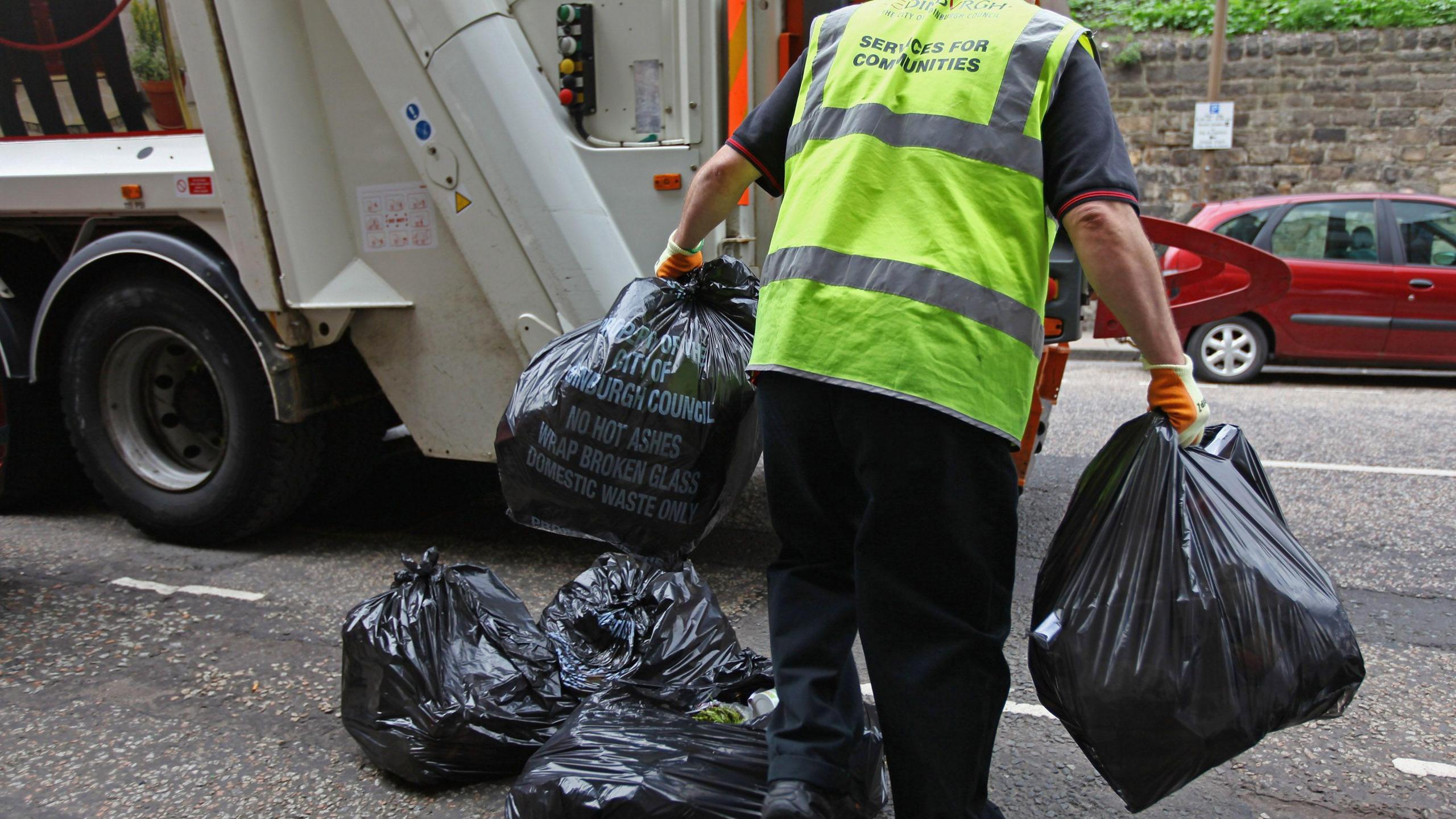Third union to ballot council staff on strike over pay

Unison said workers in waste and recycling will be the first to be balloted on striking, followed by school staff and care workers
- Published
Thousands of Scottish council workers are to vote on whether to go on strike over pay.
The biggest council union Unison plans to hold a ballot on action.
Its decision follows similar announcements on Wednesday by the two other big council unions - Unite and the GMB.
Council body Cosla says it is doing all it can to make "the best possible offer".
Council staff across Scotland should have had an annual pay rise in April.
Unions have been frustrated by the delay as well as indications that the pay offer will be far less than what they wanted.
Unions had hoped to get a formal pay offer by this week but did not. It is now likely next week.
The indications are it will be worth around 2% - less than the current rate of inflation and below the increase in the cost of living since last April.
Full details of Unison's plans for a ballot - including dates and details of which council workers will be balloted - are due shortly.
Councils facing third pay strike in three years
- Published15 May 2024
School strikes suspended after new pay offer
- Published3 November 2023
Unison said the first council workers to be balloted on striking will be those who work in waste and recycling.
School staff and care workers will be balloted later.
The GMB will also ballot care workers - any action by them could affect both home and residential care.
They should receive ballot papers next week and voting will be open until June 19.
The union says workers in other areas, including waste, may also be balloted if necessary.
Keir Greenaway, GMB Scotland senior organiser in public services, said: “This offer is already far too late and, from what we have heard, is almost certain to be far too low.
"Our members have already shown great patience but enough is enough.
“Council leaders must already suspect their offer will not be accepted but continue to waste time and inflict uncertainty.
“They claim to have no money but have made no serious attempt to persuade Scottish government ministers to provide the money needed for a realistic, acceptable offer."
The other big council union, Unite, is also balloting on strikes.
The rules covering strikes in key services mean more than a simple majority need to vote for action - more than half of those eligible to vote need to take part.
The pay offer would cover virtually all council employees across Scotland apart from teachers.
Cosla is attempting to strike a conciliatory tone, saying it understands the frustrations of the unions but stressing the financial difficulties facing councils.
A Cosla spokesperson said: “Learning from the last few years, we are working hard to maintain a dialogue with our Scottish Joint Council (SJC) trade unions partners, whilst we explore all avenues.
“We are doing all that we can to get the best possible offer on the table. It is important to reiterate that this is against the context of a flat cash settlement from Scottish government, which leaves very little room to manoeuvre without service reductions and job losses which we want to avoid at all costs.
“We understand our unions frustrations over the difficulties in getting a realistic pay offer to them given the constraints noted above. We remain committed to doing the best by our workforce who deliver essential local services in every community across Scotland.”

Unions are on a path which could lead to the third council pay strike in two years.
But is a further round of council pay strikes inevitable?
The unions claim the last two strikes could have been avoided if councils had engaged with them earlier.
They are aware of the difficult financial situation facing councils. Any pay offer has to be affordable to all 32 councils.
The last two pay strikes were only resolved after the Scottish government made more money available to councils to help.
Unions believe the government may well need to do the same this time.
Any strikes are still at least a month and a half away so they hope moves will be made which could lead to a resolution without the need to take industrial action.
But they also fear action is going to prove necessary again.
